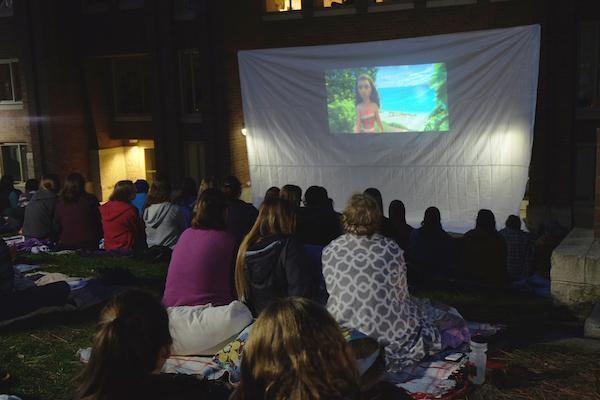In the mid-1990s, a few weeks into my first semester at a big state school, I joined a handful of other students from our campus pro-life club and held a giant poster of an aborted fetus. It was one of those big, gory color photos, the kind favored by street preachers or demonstrators along the Bloomsday course. We stood near a cluster of historic buildings to face the crawling Friday traffic. I felt the rush of doing something bold for God, proclaiming a truth that was unpopular, even unpalatable, but necessary. It was only afterwards, sitting in my friend Sarah’s dorm room, that we considered the usefulness of what we’d done. I experienced a sort of a spiritual indigestion. Even if our message was right, I thought, the delivery was all wrong.
About a year and a half ago, my spouse and I attended a demonstration in Spokane in support of Planned Parenthood. Instead of holding a sign, I wore our four-month-old daughter in one of those cumbersome wraps. I stood with this group not least because, when I was a graduate student in the 2000s, I went to the Planned Parenthood closest to campus for their affordable care. My experiences of pregnancy and motherhood have made the conversation about access to health care, particularly women’s health care, much more real for me.
I was surprised and disappointed at the administration’s recent decision not to allow students or clubs to partner with Planned Parenthood. One of the features of Whitworth that I most cherish, that won me over from the start, is that this place doesn’t mandate that you live your faith according to one mold (and for students, of course, it doesn’t require that you have a faith at all). This leaves open room for all kinds of uncomfortable and, one hopes, healthy disagreement. It would be so much easier to have everyone sign a statement of belief and be done with it. I’m grateful for a university willing to ask, again and again, what this open-ended approach to faith looks like, and that this question is approached with prayer and careful thought.
Many concerns about this decision regarding Planned Parenthood have already been well expressed in the opinions section of “The Whitworthian” and by students and faculty at the recent community forum. One of my biggest objections is that for a university that prides itself on “courageous conversations,” this move mutes important conversations before they can even begin.
We have a lot to learn from people involved in Whitworth’s pro-life student groups. There are many different ways to be pro-life, and I’m interested in the diversity of ideas and actions in that movement. Also, I imagine it’s changed quite a bit in the last 20-plus years (surely the posters are more tasteful and compassionate).
The reverse is also true: those who identify as pro-life can learn from other views.
Labels like “pro-life progressive” or “prayerfully pro-choice” would not have made sense to me as an undergraduate, but there’s middle ground between the poles of “pro-life” and “pro-choice.” For example, for those of us who would like to reduce the number of abortions, regardless of where we fall on this spectrum—why not join forces to make health care more readily available, including contraception?
Generation Action supports Planned Parenthood’s mission to make reproductive health care more accessible for everyone and to promote fact-based education about human sexuality. If our existing pro-life clubs are discussing issues like this, then please turn up the volume. If not, then it’s even more obvious why Whitworth should welcome—officially and with equal resources—groups that would like to get us talking.
Nicole Sheets is an associate professor of English. She can be reached at nsheets@whitworth.edu.










 Spokane?
Spokane?
Dumbledore's Army • May 15, 2017 at 5:00 pm
An Open Letter to the Administration, Board of Trustees, and our Peers
Regarding Whitworth’s Failure to Provide Adequate Sexual Health Education Resources
https://docs.google.com/document/d/1uzWjG9KysJ4VlVi8Yg1M7hJdu_oLwHtSUOfxNW32r-g/edit?usp=sharing